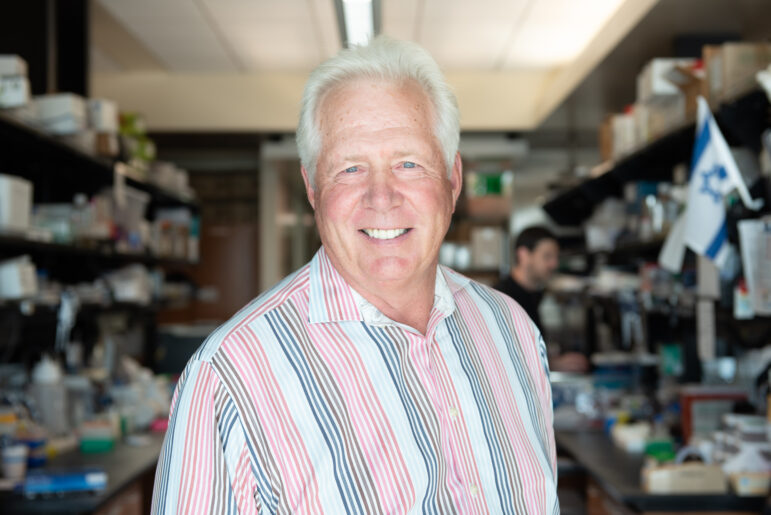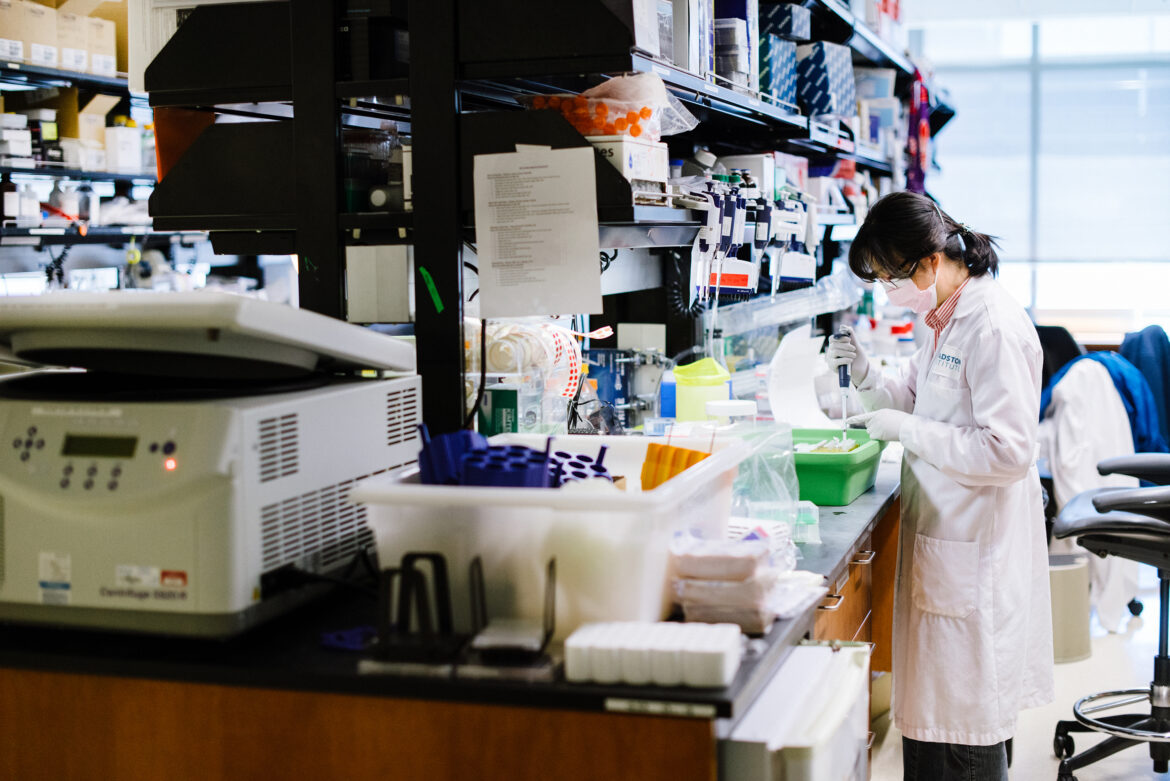While scientists around the world raced to develop a vaccine to prevent infection with SARS-COV-2 during the early days of the COVID-19 pandemic, the Gladstone institutes in San Francisco turned their expertise in battling HIV toward studying the coronavirus.
Dr. Warner Greene, a senior biologist and clinician at the Gladstone Institutes, told us about some of those early efforts last March on “Civic.” His colleagues were looking at existing drugs that might be repurposed to fight the coronavirus.
On a follow up interview on “Civic” on Tuesday, he said that work continues: “I would say that at this point in time, there are lots of promising leads, but no absolute home runs.”
An example of one of those early leads that proved to be a false hope was the repurposing of the antimalarial drugs hydroxychloroquine and chloroquine, which were touted by President Trump and others as a treatment, but when studied in patients proved to have no impact on the course of COVID-19.
New intravenous therapies such as Remdesevir and monoclonal antibodies have proven effective at reducing the severity of COVID-19, but must be given early in the course of disease and in a medical setting.
The key in the future will be to find or develop drugs that will interfere with the Coronavirus’ ability to continue to infect cells once it is established in the body, ideally in a drug form that can be taken as a pill or inhaled.

Basic research coming out of Gladstone and other labs has found that all known coronaviruses use the same sequence of proteins to gain entry into the host cells. “So we’re looking for peptide inhibitors that could be potentially inhaled,” Greene said. “That would apply not only to SARS-COV-2, but to any Coronavirus. So if we were ever unfortunate to see SAR-3 [or] SARS-4, we would have in our back pocket a potent antiviral.”
Therapies to treat future outbreaks aren’t the only concern. Another major issue involves the estimated 10% of COVID-19 patients who have gone on to experience symptoms long after their initial infection. Treatments for so-called “long haul” COVID-19 patients have become a major focus of researchers.
Greene said one factor his colleagues are examining is COVID-19’s creation of tiny blood clots throughout the body. Young people are experiencing strokes or clots in the lungs or legs, with the latter symptom causing blue toes, he said.
Gladstone and other researchers believe the blood clotting may be part of some complex and not yet understood autoimmune response.
“Hopefully we can find some interdictions that will short circuit those responses,” he said.
Dr. Steven Deeks, a UCSF Professor of Medicine and Gladstone Center for AIDS researcher, is starting a cohort of long haulers to clinically study those patients.
However the research continues to advance and for all the tragic loss of life and failed public policy during the pandemic, Greene said it is still important to realize what has been achieved in less than a year.
“This pandemic will go down in history as a true triumph of science, the creation of these vaccines in record time that have such high efficacy,” he said. “A testimony to the investments that have been made in science in the past that enabled this type of incredible response. So I hope that everyone remembers this and that science continues to be supported in this country in a way that it should be.”
A segment from our radio show and podcast, “Civic.” Listen daily at 8 a.m. and 6 p.m. on 102.5 FM in San Francisco, and subscribe on Apple, Google, Spotify or Stitcher.










